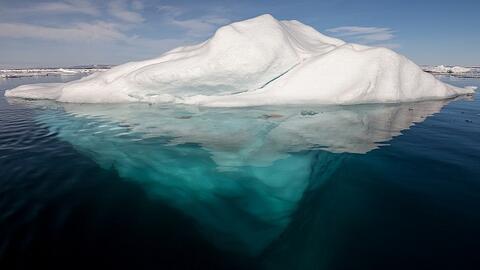
The Université Laval and Sorbonne University: Three Days on Arctic Marine Science
From May 31st to June 2nd, a colloquium organized by the Université Laval and Sorbonne University was held on the Pierre and Marie Curie Campus.
This collaborative focus on the Arctic oceans and marine sciences highlights how very complimentary the Université Laval’s knowledge of the Arctic and Sorbonne University’s expertise in modeling and simulation of the oceans. This is in line with the two universities commitment to ecological, social and health issues. Guillaume Fiquet, vice president for partnerships at Sorbonne University and Martin Fortier, deputy vice rector for internationalization, research and innovation opened the meeting with presentations on our long-standing cooperation in oceanography.
Sorbonne University federates Europe's largest university community focused on the oceans, with activities structured around research, education, innovation and transfer. The University has a strong presence in national and international research programs and infrastructures (Argo, EMSO, Tara), and supports the European EMBRC (European Marine Biological Research Centre) infrastructure, which federates research and technology services in marine biology.
An exception number of Laval and Sorbonne representatives of oceanic research structures also attended, including: Takuvik, the joint CNRS and Laval international research laboratory; the Quebec Nordic Institute; the Canada ArcticNet; as well as the Sorbonne University Ocean Institute and the Oceanographic Marine stations.
Cooperation supported between the two universities
This is one of a number of strategic partnerships that we have chosen to target in each part of the world to strengthen global collaborations. These strategic partnerships are a wide-open way of facilitating cooperation between teams, with the support of governing bodies and the provision of resources for these collaborations. NTU in Singapore is one of these other strategic partners, whose representative is taking part in this symposium.
The first two days focused advanced research programs. Following the presentations on various research underway, a roundtable discussion explored possible initiatives in shared research activities.
Collaboration was discussed including the establishment of observation stations in the Arctic in the framework of the PPR Future-Obs, led by Sorbonne University. The REFUGE-Artic project, at the Takuvik international joint laboratory (CNRS-ULaval) brings together several Sorbonne University laboratories and possible interest in other laboratories joining the consortium.
Day three was dedicated to international degree programs centered on the research areas in arctic marine sciences. Sorbonne University and the Université Laval shared their current academic programs, and discussed the internationalization of master’s programs, internships and summer schools. The Colloquium closed with the suggestions on how to facilitate joint post-graduate and doctoral programs.
